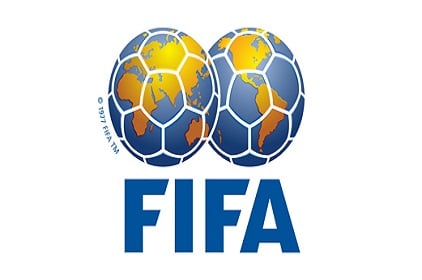The South African Football Association (SAFA) and midfielder Teboho Mokoena are facing disciplinary action from FIFA, the world’s football governing body, for allegedly fielding an ineligible player during a crucial 2026 World Cup qualifier against Lesotho in March. The charges stem from Mokoena’s participation in the match despite having accumulated two yellow cards in prior qualifying games, against Benin and Zimbabwe, which, according to FIFA regulations, necessitates a one-match suspension. This oversight has placed South Africa’s campaign in jeopardy, with potential sanctions ranging from a forfeited match and a 3-0 victory awarded to Lesotho, to fines and suspensions for the player and the association.
The ramifications of a guilty verdict extend beyond a simple loss on paper. South Africa currently leads Group C with 17 points, but forfeiting the match against Lesotho would deduct three points, bringing them level with Benin at 14 points and narrowing the gap with Nigeria to a mere three points. This reshuffling of the standings would inject a renewed sense of competition into the final stages of qualifying, with the automatic qualification spot suddenly up for grabs. Lesotho, currently languishing in fifth place with six points, would see their tally boosted to nine points, still trailing Nigeria and Rwanda, both on 11 points, but potentially providing a late surge for a higher finish.
The timing of these charges couldn’t be more critical for South Africa, with two crucial qualifying matches looming against Zimbabwe and Rwanda in October. The cloud of uncertainty hanging over their campaign adds an extra layer of pressure as they strive to secure their place in the 2026 World Cup. Nigeria, meanwhile, will be closely observing these developments, as their upcoming matches against Lesotho and Benin suddenly become pivotal in their own quest for qualification. A slip-up by South Africa, coupled with Nigerian victories, could dramatically alter the group’s final standings.
This case resonates with recent precedents, reinforcing FIFA’s strict adherence to eligibility rules. Equatorial Guinea faced similar consequences for fielding an ineligible player, Emilio Nsue, during the qualifiers. The subsequent sanctions imposed on Equatorial Guinea, upheld by the Court of Arbitration for Sport, serve as a stark reminder of the importance of meticulous player management and adherence to regulations. The SAFA’s oversight underscores the potential for seemingly minor administrative errors to have profound consequences on a team’s World Cup aspirations.
The upcoming six-day period, during which SAFA and Mokoena are required to submit their response to FIFA, will be crucial. Their defense will likely focus on mitigating factors, potentially arguing for leniency based on administrative oversights or misinterpretations of the regulations. However, given FIFA’s recent stance on similar cases, securing a favorable outcome will be a challenging task. The disciplinary committee’s decision will have a significant impact not only on South Africa’s World Cup hopes, but also on the broader landscape of African football qualifying.
In the broader context, this incident highlights the increasing complexity of international football administration. With multiple overlapping competitions and intricate eligibility rules, maintaining accurate player records and ensuring compliance becomes a critical responsibility for football associations. The South African case serves as a cautionary tale for all teams participating in international competitions, emphasizing the need for rigorous administrative processes to avoid jeopardizing their campaigns due to preventable errors. The outcome of FIFA’s disciplinary proceedings will be eagerly awaited by football fans across Africa and beyond, as it holds the potential to reshape the 2026 World Cup qualifying landscape.














